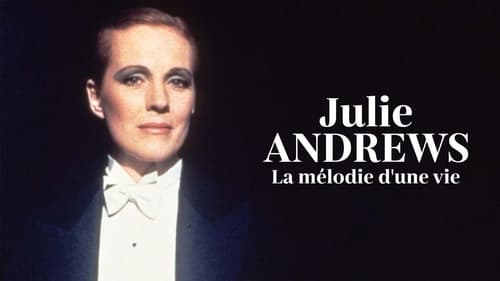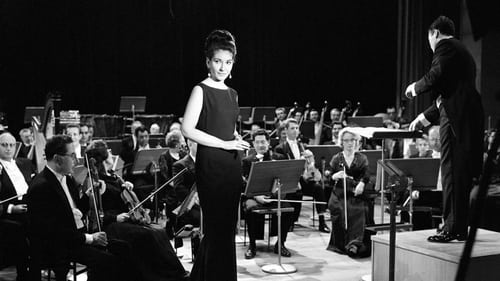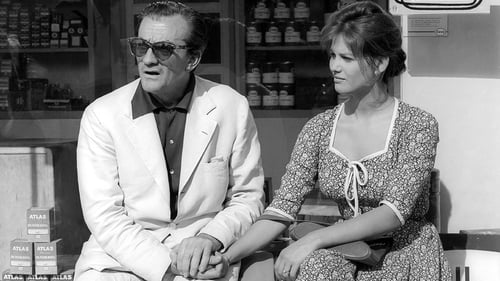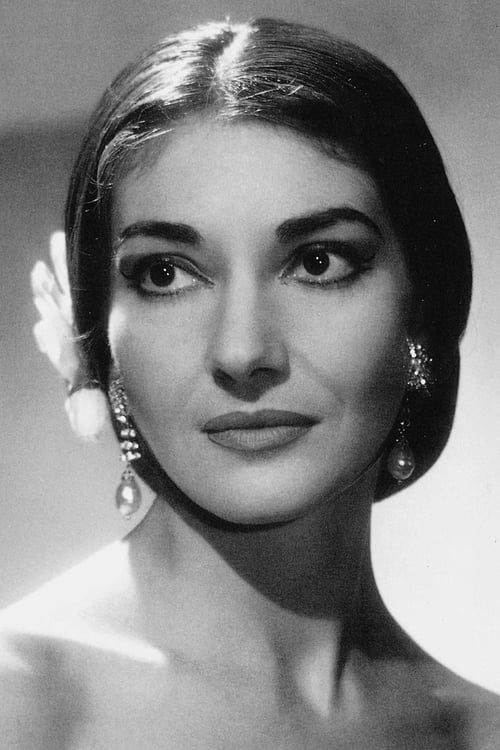María Callas
Nacimiento : 1923-12-02, Manhattan, New York, USA
Muerte : 1977-09-16
Historia
Maria Callas, born Maria Anna Sophie Cecilia Kalogeropoulos, was a Greek-American soprano, and one of the most renowned and influential opera singers of the 20th century. Many critics praised her bel canto technique, wide-ranging voice and dramatic interpretations.

Herself (archive footage)
A night to remember. Maria Callas, the quintessential diva and the face of the opera in the 20th century, made her Paris debut with this legendary performance at the sumptuous Paris Opéra on December 19th, 1958, for one night only.

Self (archive footage)
A documentary view of the galas of Paris’s Palais Garnier in the 1950s and ’60s.

Floria Tosca (sopran)
At the beginning of 1964, the music world experiences something completely unexpected. Maria Callas returns to the opera stage as the prima donna. Her "Tosca" at the Royal Opera House becomes a sensation. Maria Callas wants to show everyone once again that she deserves the title of "prima donna assoluta." On the condition that star director Franco Zeffirelli take over the direction, the exceptional singer agrees to sing the role of Tosca. The BBC recorded the 2nd act of the opera for television. It is one of the most dramatic acts in opera history: in order to free the painter Cavaradossi from the hands of torturers, Tosca ends up murdering the police chief Scarpia. The film footage is one of the rare opportunities to see Maria Callas in an opera performance and to experience her highly emotional performance art and vocal abilities.

The documentary shows Maria Callas playing “Tosca”, at the Royal Opera House, London, in 1964. The event gained proportion due to the expectation of her return to the stage.

Self (Archive Footage)
Julie Andrews starred in Hollywood productions that have become iconic movies, winning an Oscar for her performance as Mary Poppins, a symbol of the magic of musicals from the 1960s. And yet, behind the squeaky-clean image hides a much more tortuous career, with its moments of glory and tough times, all of which explain the longevity of a story that is still being written.

Herself (archive footage)
La película estará protagonizada por Maria Callas, Onassis, Marilyn Monroe, Alain Delon, Yves Saint Laurent, J.F. Kennedy, Luchino Visconti, Winston Churchill, Grace Kelly, Liz Taylor y más personas.

Self (archive footage)
Forty years after his death, this documentary pays tribute to one of the major filmmakers of Italian cinema, to an original work that continues to inspire today's cinema. Coming from one of the greatest families of the Italian aristocracy, he could have been a rich and cultured man, living in opulence and idleness, but Luchino wanted a different destiny. This is the story that director Elisabeth Kapnist and Christian Dumais-Lvowski wanted to tell. Count Visconti di Modrone wears the clothes of a legend that he never stopped shaping throughout his life. This documentary reconstructs the fabric of a brilliant life, dedicated to art; theater, opera, and cinema. This artistic work is also that of a committed man, who was a fellow traveler of the Communist Party, and who resisted fascism.


Self
La carrera de Maria Callas fue demasiado temprana y demasiado breve para recibir documentación en video completa y satisfactoria como la que ahora se otorga a cantantes como Renée Fleming y Luciano Pavarotti. Este recital televisado en blanco y negro (el debut de Callas en París) tuvo lugar en la Ópera de París el 19 de diciembre de 1958 cuando la televisión aún estaba en pañales. Podríamos desear que hubiera sucedido antes, cuando su voz estaba en mejores condiciones, o más tarde, cuando la tecnología de grabación de video era más avanzada, para que, por ejemplo, no tuviéramos que tomar la palabra del narrador de que Callas está usando un traje rojo. vestir. Pero esta es probablemente la mejor grabación de video disponible de Callas, y sus admiradores la recibirán calurosamente. Los elementos visuales eran tan importantes como las dimensiones vocales en su arte.

Se stessa
A journey back through Dacia Maraini's and her trips around the world with her close friends cinema director Pier Paolo Pasolini and opera singer Maria Callas. An in-depth story of this fascinating woman's life. Maraini's memories come alive through personal photographs taken on the road as well as her own Super 8 films shot almost thirty years ago.

Self (archive footage)
Este revelador documental del director Philippe Kohly examina la legendaria vida de la reconocida soprano Maria Callas, desde su problemática infancia en la ciudad de Nueva York hasta su carrera internacional llena de escándalos pero triunfante en la ópera. Con entrevistas de archivo con la propia Callas y filmaciones de contemporáneos como su amante Aristóteles Onassis, esta celebración de "La Divina" rinde homenaje a su legado perdurable unas tres décadas después de su muerte.

(archive footage)
The documentary "The Greek Maria Callas", directed by Tassos Psarras, broadcast by ERT1 on Saturday, September 23, 2017, at 13:20, focuses on the Greek period of Callas and the visits to Greece from 1957 until her death .

Self (archive footage)
With the Olympics returning to Greece, the opening ceremony of Athens 2004 sought to show the entire development of the Olympics over the centuries, until arriving at the modern Olympics.

Some of the scenes cut from the final editing of Medea by Pier Paolo Pasolini, fortunately found by L’Officina - a historic Roman film club born in the 1970s - on the initiative of Cinemazero in Pordenone have been preserved and digitized at the Cineteca del Friuli. These materials, with the care of the Pasolini scholar Luciano De Giusti, have been reassembled, accompanied by texts / readings and original music by Paolo Corberi: here are the "Visions of the Medea (traces of a dreamed film)", now a very important document to reconstruct the creative process of production and reliving the poetic / lyrical aura of the film's protagonists and places, including the lagoon of Grado (GO).

Imagine a window into the past. Imagine finally connecting singers' bodies to the voices you have always treasured on record, watching footage of performances from another era. All of singers featured here have something in common (with one exception, Sutherland): they sang and performed on stage before the advent of filmed opera. . And it shows, for the first time, a few tantalizing minutes of recently recovered footage from Callas' legendary Lisbon Traviata, featuring Addio dal Passato and Parigi oh cara with Alfredo Kraus. This DVD will leave you asking for more.

Self
1997 documentary with then-new interviews with people who worked with la Callas, as well as archive footage of interviews with associates. Film clips, photos and recordings illustrate her performance powers.

Self
Maria Callas, la súper soprano greco americana, vivió como un personaje de ópera. Una vida en la que conoció a hombres como Visconti o el magnate Onassis, con quien vivió una relación muy tormentosa

Self (archive footage) (uncredited)
A woman goes to Cannes and, lost in its chaos and unable to obtain tickets, ends up watching it on television from her hotel room.

Self (archive footage)
Narrated by cinema legend Franco Zeffirelli, this intimate made-for-television documentary traces the life and times of the mercurial Maria Callas, one of the most renowned and respected operatic divas of the mid-20th century. Rare authentic footage, candid interviews and breathtaking performances help paint a portrait of an artist remembered as much for her quick and explosive temper as she is for her immeasurable talent.

Medea
Adaptación de la tragedia griega de Eurípides en la que Pasolini muestra la trágica confrontación entre dos culturas incompatibles: el mundo mágico e irracional de Medea y el mundo racional de Jasón. Supuso la única incursión en el cine de la gran diva de la ópera Maria Callas.

Herself
1968 interview with Lord Harewood.

Self
Various international presentions are featured through satellite uplink.

Interviewee
BBC television program exploring Visconti’s mastery of cinema, theater, and opera direction.

Maria Callas’ legendary live performances from the Royal Opera House, Covent Garden, from 1962 and 1964 celebrate her triumphant return to the Covent Garden stage. Repertoire from these performances include Verdi: Tu che le vanità (Don Carlo), Bizet: Habanera & Séguedille (Carmen) and Puccini: Tosca (Act II complete). Her vivid portrayals of the tragic Elisabeth de Valois, the tantalising Carmen, and her vulnerable Tosca (directed by Franco Zeffirelli) captured the hearts of the London audiences. This is Maria Callas as the world remembers her. Renato Cioni, Tito Gobbi, Robert Bowman, Dennis Wicks Orchestra & Chorus of the Royal Opera House, Covent Garden- Conducted by Georges Prêtre & Carlo Felice Cillario.

Herself
The 1959 concert finds Callas just 1 year before the loss of her voice and although her voice is not what it was in 1952 you can still hear the Vocal Miracle. The repertoire interchanges between heavy dramatic soprano (Lady Macbeth, Elisabetta), to soprano coloratura (Rosina) and to soprano dramatico d'agilita (Imogene in Pirata, Gulia). The maturity of the interpretation regarding the legatti, the phrasing is astounding and Callas dominates each aria singing them in the only possible way. "Tu che invoco" appears as a cataract of dramatic phrases in a fine classical style of this classical period opera, then Lady Macbeth appears diabolical & dark although she avoids keeping her voice in the high C, her Rosina is sparkling and facile in the coloratura as if it is a natural way of speaking and Elisabetta is where time stops: the drama in this aria holds a metaphysical aura. Finally her entire Mad Scene from Pirata shows all her talent as an actress and bel canto singer.









